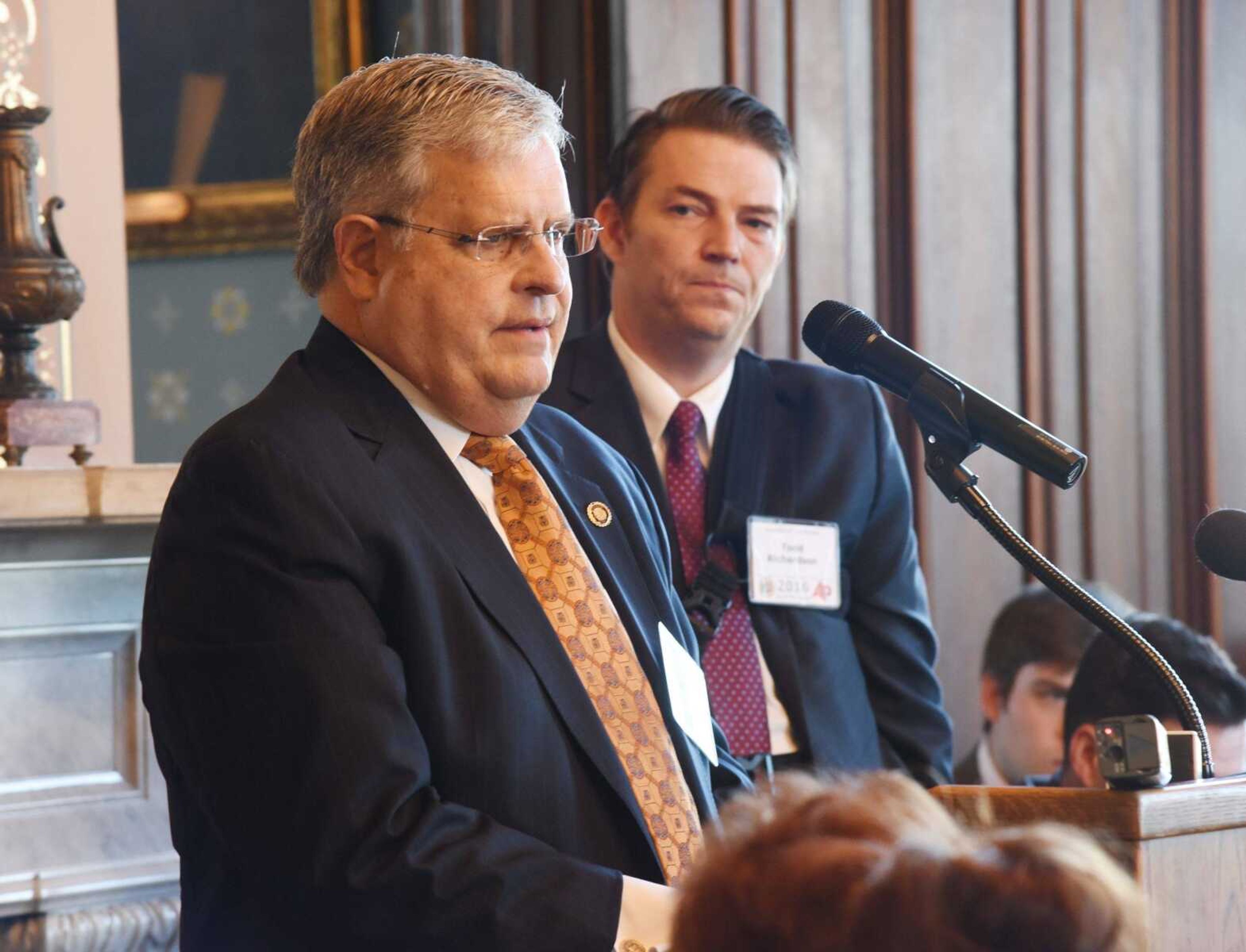Top lawmakers claim exemption from open-records law
JEFFERSON CITY, Mo. -- Standing in front of dozens of editors and reporters, Missouri Senate President Pro Tem Ron Richard was asked whether he believed the emails and daily schedules of legislators should be open to the public under the state's Sunshine Law...
JEFFERSON CITY, Mo. -- Standing in front of dozens of editors and reporters, Missouri Senate President Pro Tem Ron Richard was asked whether he believed the emails and daily schedules of legislators should be open to the public under the state's Sunshine Law.
"All you have to do is ask for it, and I'll give it to you. I don't care," Richard responded.
Yet when The Associated Press submitted an open-records request for a week's worth of Richard's emails and daily calendars, his "yes" changed to "no." The Senate administrator responded on Richard's behalf with a written denial, asserting individual senators are not subject to the law.
The AP received similar denials for records from Senate Minority Leader Joe Keaveny and House Speaker Todd Richardson. House Minority Leader Jake Hummel was the only one of Missouri's top four lawmakers to provide the information.
Gov. Jay Nixon also released the information, though his emails consisted only of news clips and news releases.
The response in Missouri is similar to that in many states. The AP submitted open-records requests to the top legislative leaders in all 50 states, seeking copies of their daily schedules and emails from their government accounts for the week of Feb. 1 to 7. Most denied the requests, often citing exemptions from the open-records laws that apply to most state executive agencies and local governments.
Richard, who took the Senate's helm in September, told the AP he backed off his early February declaration after learning his predecessors had determined senators' records aren't subject to the Sunshine Law.
"If it is what other pro tems have ruled, and that's our policy, then I'm certainly going to stay with that," said Richard, a Republican from Joplin.
He also said constituents sometimes share their personal problems with lawmakers.
"What happens if you have an email talking about child abuse and family issues and the fact that you're trying to help somebody?" Richard said.
Under the Missouri Sunshine Law, the fact some emails may contain sensitive information is not a reason for denying access to all emails. Rather, the law lets particular records be redacted or withheld -- such as those dealing with welfare cases or mental and physical health proceedings -- while the rest are released.
The Missouri Sunshine Law applies to any "public governmental body." The Legislature has interpreted that to cover its two chambers and various committees but not each individual lawmaker. It points to a July 2003 ruling of a state appeals court panel, which said a St. Louis school board president as an individual was not a "public governmental body" and thus not individually subject to the Sunshine Law.
The state Supreme Court has not ruled definitively on whether the Sunshine Law applies to individual lawmakers.
Hummel believes it does, and has instructed House Democrats to comply.
"We think that we are not above the law and that we should absolutely turn over the records when requested," said the St. Louis Democrat, whose office provided the documents within hours of the request, one of the fastest responses nationally.
His emails included requests from colleagues to co-sponsor bills, updates on the legislative positions of the AFL-CIO -- by whom Hummel is employed as the state secretary-treasurer -- and invitations to attend events held by interest groups. Hummel's calendar listed several such receptions and dinners, but he said he didn't attend them because he was in Chicago for AFL-CIO meetings.
Lawmakers can release records voluntarily as Hummel did, said Richardson, an attorney who took over as House speaker in May. But he said he believes the House's official interpretation that lawmakers are not required to do so "is consistent with the law."
Richardson said he sometimes gets hundreds of emails an hour on his government account, which is routed to his personal phone. Trying to determine on a case-by-case basis which ones should be exempt from an open-records request "would be very difficult," he said.
Connect with the Southeast Missourian Newsroom:
For corrections to this story or other insights for the editor, click here. To submit a letter to the editor, click here. To learn about the Southeast Missourian’s AI Policy, click here.










